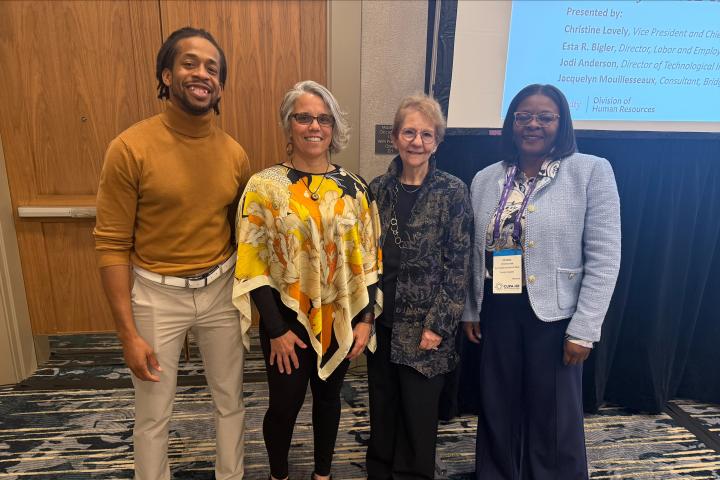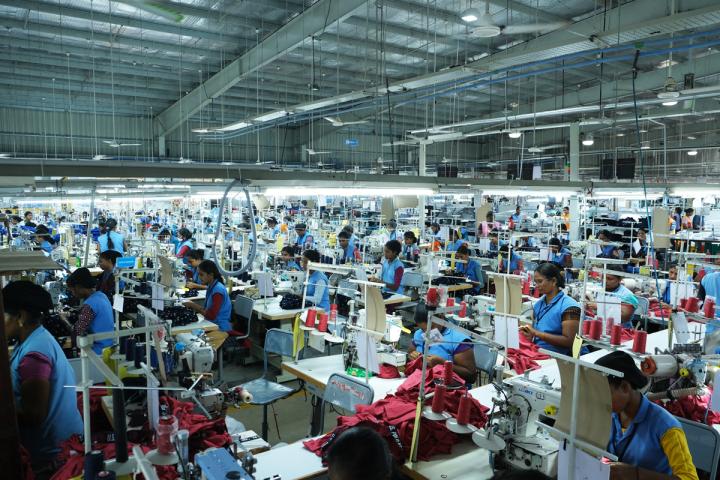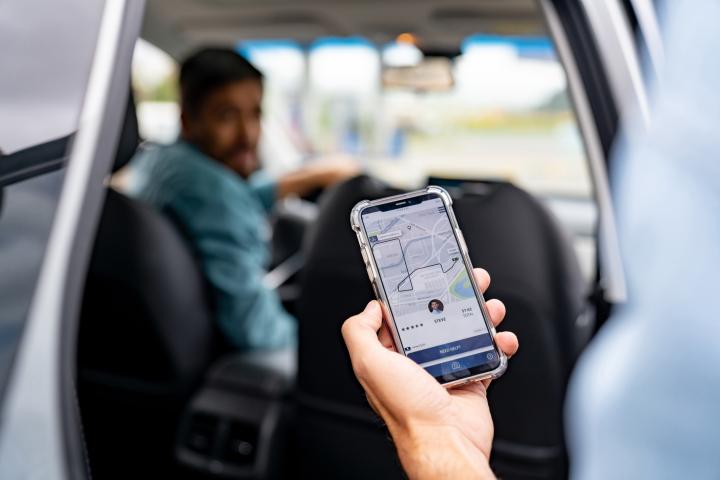
What’s the Connection between COVID-19 and Climate Change? Inequality
The triple crises of COVID-19, climate change and soaring inequality present a moment of great peril and opportunity for the U.S.
The COVID-19 global health pandemic has both highlighted and deepened the dangerous levels of inequality that currently exist in the U.S. Too many Americans – especially people of color and immigrants – lack access to paid sick leave, health care and other resources that help protect against the spread of COVID-19. This includes many frontline workers who are underpaid and undervalued for the “essential” work they do to keep our economy running and our families cared for.
Growing inequality of income, wealth, power, and opportunity has made the U.S. particularly vulnerable to COVID-19. Forty two percent of the U.S. population earns less than $15 an hour. More than 27 million Americans do not have health insurance. And, seven out of 10 low-wage workers do not have paid sick days (according to the Century Foundation, Making the Economic Case for a $15 Minimum Wage; Kaiser Family Foundation; PaidSickDays.org). Lacking union representation, the vast majority of our workforce does not have a collective, democratic voice on the job to negotiate paid time off, health insurance, personal protective equipment or the terms of layoff during an economic downturn like the one caused by COVID-19.
For people familiar with climate change, the COVID-19 pandemic can feel like an eerie clarion call for our potential future or for some, a flashback to past climate-driven extreme weather events such as Hurricanes Katrina, Sandy and Maria. Like COVID-19, climate change is a major public health and economic crisis layered on top of the crisis of inequality we already face. In other words, the most vulnerable in our society – women, immigrants, communities of color and low-income families – are hurt first and worst.
Inequality of wealth and power also plays a significant role in why the U.S. hasn’t done more to address the climate crisis or protect low-income, communities of color from COVID-19. While the vast majority of Americans support action on climate change, many of the wealthiest people and corporations in the U.S. have denied climate change exists or opposed and weakened climate protection efforts to protect their bottom lines (*see below). Similarly, many corporations, such as in the meatpacking industry, prioritized continuing their operations over the safety and well-being of their workers, causing serious and deadly outbreaks of COVID-19 among their workforce and surrounding communities. The intensifying economic and political power of corporations has also meant that our public institutions and infrastructure are managed at the behest of the wealthy, and are not equipped to protect the majority of Americans during crises like COVID-19. Amplifying this point, some have already asked if the Federal Emergency Management Agency (FEMA) is prepared for a major hurricane to hit during the COVID-19 crisis – the hurricane season is underway and the Atlantic Coast is projected to be hit by up to 19 potential storms this year (https://prospect.org/environment/pandemic-still-with-us-but-hurricanes-also-loom/).
Without urgent and dramatic action to reduce greenhouse gas emissions and pollution, scientists have warned that the U.S. can expect $500 billion of damage, two billion hours of lost labor and $160 billion in lost wages annually by 2090. That’s because we will see more frequent and intense storms and flooding, extended heat waves, deeper droughts and larger wildfires. Dramatic sea level rise will have a major impact on our coastal communities and essential infrastructure, too – for example, South Florida won’t exist in 2100.
It’s also important to note that scientists have long warned that climate change will cause an increase in infectious disease, such as COVID-19. Warmer temperatures, higher sea levels, more significant precipitation events, and increased contact between humans and animals due to loss of habitat help extend the geographic reach and transmission season of diseases.
Like the COVID-19 pandemic, the climate crisis affects everyone. But, it’s the most vulnerable in our society who are hurt most. Construction and other outdoor workers, especially those who don’t have a collective voice on the job, suffer from heat strokes as heat waves intensify. Low-income families with fewer resources can’t escape to safe areas when hurricanes, fires or floods hit; they also receive far less aid in recovery efforts, and this is especially problematic for undocumented immigrants who aren’t able to access aid and may be afraid to request support during extreme weather events. Frontline workers – in health care, utilities, transit and other essential services – risk their lives during extreme weather events. Low-income, communities of color bear the brunt of climate change through the polluted air they breathe. In fact, recent studies have shown that individuals from neighborhoods with elevated levels of air pollution are more likely to contract COVID-19, because their respiratory systems are already compromised.
And although the climate crisis is slower moving than COVID-19, its impacts are already widely felt. Climate change causes an estimated 150,000 deaths per year globally. The World Health Organization predicts that climate change will cause an additional 250,000 deaths per year from 2030 to 2050. Hurricane Katrina, which struck New Orleans and the Gulf Coast in 2005, dislocated 1.5 million people and caused a payroll decline of 35% in the two months following the storm. Puerto Rico sustained at least $90 billion in damage from Hurricane Maria in 2017, reducing the island’s gross domestic product by 8%. A year after the storm, 8,000 small businesses had not reopened and 40% of residents had lost their job or were earning less money. As the climate crisis expands and deepens, the economic impacts from it will also grow. And, to avoid the worst impacts of climate change, we will need to transform whole sectors of our economy from high-carbon to low and zero-carbon activities, dislocating many workers and communities.
In addition to the tragic loss of life from COVID-19, the U.S. is entering a deep depression, potentially on par with the Great Depression of the 1930s. Over 47 million people have filed for unemployment; globally, more than 80% of the workforce has been affected by a full or partial lockdown. How we respond to this growing economic crisis has incredibly significant implications for the health and well-being of many Americans and the future direction of this country. Will we act quickly and boldly to rebuild a more inclusive, equitable and climate-friendly economy and society? Or, will we accelerate our triple crises of inequality, COVID-19 and climate change, leading to greater loss of life and deteriorating social, economic and environmental conditions, particularly for people of color and immigrants?
Rebuilding to a fairer, more equitable and low-carbon economy requires acknowledging that our current political-economic system is failing us, degrading workers, communities and the climate in equal measure, fueling the triple crises we now face. The current protests across the U.S. also demonstrate that our political-economic system, based on a legacy of slavery and white supremacy, is particularly broken for Black Americans, who are threatened daily by white racist terror and suffer greatly from historic and continuing racial, economic and political inequality.
Put simply, increasing wealth and profits is prioritized over the fair economy, robust democracy, racially-just society, and healthy environment: we need to improve living and working conditions for the vast majority of Americans. This is most clearly demonstrated by the divergence of productivity and wages since the 1970s – while productivity has increased dramatically, wages have remained stagnant, as the fruits of workers’ labor have gone to corporate profits and greater wealth at the top.
Responding to the triple crises of COVID-19, climate change and inequality requires three fundamental components:
One: massive public and private investment in clean energy projects that help tackle the climate crisis and create good jobs.
Two: labor standards that ensure the creation of high-quality union jobs with good pay, benefits and collective voice on the job.
And three: an expanded social safety net that helps protect and support the most vulnerable in our society.
We must dramatically reduce our greenhouse gas emissions and pollution in the next ten years to avoid the worst impacts of climate change, including catastrophic loss of life. Major investment in energy efficiency, renewable energy and public transit will put people to work during this economic crisis and create the infrastructure we need to transition to a climate-friendly and more equitable economy. Numerous studies have shown that investment in clean energy sectors as well as other climate-friendly sectors like education, health care, and family care create more jobs per million invested than investment in other sectors.
As we make these major investments, it’s imperative that we include labor rules that help ensure that new jobs are good, family and community-sustaining jobs that reverse inequality. After the 2008 crisis, too many high-wage jobs were replaced with low-wage jobs. The fastest growing jobs in the country right now are solar and wind installers. Unfortunately, the vast majority of these jobs are low-wage, low-quality jobs. Prevailing wage, Project Labor Agreements (PLAs), labor neutrality and peace to support workers having a collective voice on the job, and wage boards to set standards in new industries are all important and appropriate methods for supporting the creation of high-quality jobs.
Governor Cuomo and New York state have already shown we can tackle the dual crises of inequality and climate change simultaneously. In 2019, Governor Cuomo committed New York state to building 9 gigawatts of offshore wind power – the equivalent of approximately half of New York state’s power needs – with a Project Labor Agreement (PLA) requirement. The union-led Climate Jobs New York organization, along with environmental organizations and other allies, pushed for this solution to ensure that state investment in offshore wind power, priced lower than coal, oil and gas, would create high-quality jobs connected to a career pipeline for disadvantaged communities. Even amidst the COVID-19 crisis, a recent Empire State Poll found that 75% of New York residents support major investment in clean energy projects that create high-quality, family- and community-sustaining jobs.
Finally, a broader social safety net is essential to protecting and supporting the most vulnerable in our society. In response to COVID-19, we have expanded paid sick leave, extended unemployment benefits to “gig” workers, and some states have frozen evictions, foreclosures and student debt. These protections, along with others such as universal health and family care, including for undocumented immigrants, are key to creating a more just workplace and society.
The COVID-19 public health pandemic, the ensuing economic crisis and now a national racial justice uprising all highlight the dangerous levels of economic, racial, and political inequality that currently exist in the U.S. The climate crisis is fueled by and will exacerbate these crises, as so many young climate activists have pointed out in the last year. These intersecting crises present a moment of great peril and opportunity for the U.S. If we seize the opportunity to truly address these crises, we can build the fair, equitable and ecologically sustainable economy and society we need.
*Poll: American Voters Support Climate Action, Yale Program on Climate and Communication. September 4, 2019: https://climatecommunication.yale.edu/news-events/poll-american-voters-support-climate-action/; Tabuchi, Haroka. “Who is Influencing Key Decisions?” from A Crash Course on the Climate, 50 Years After Earth Day, New York Times, April 19, 2020: https://www.nytimes.com/interactive/2020/04/19/climate/climate-crash-course-4.html



